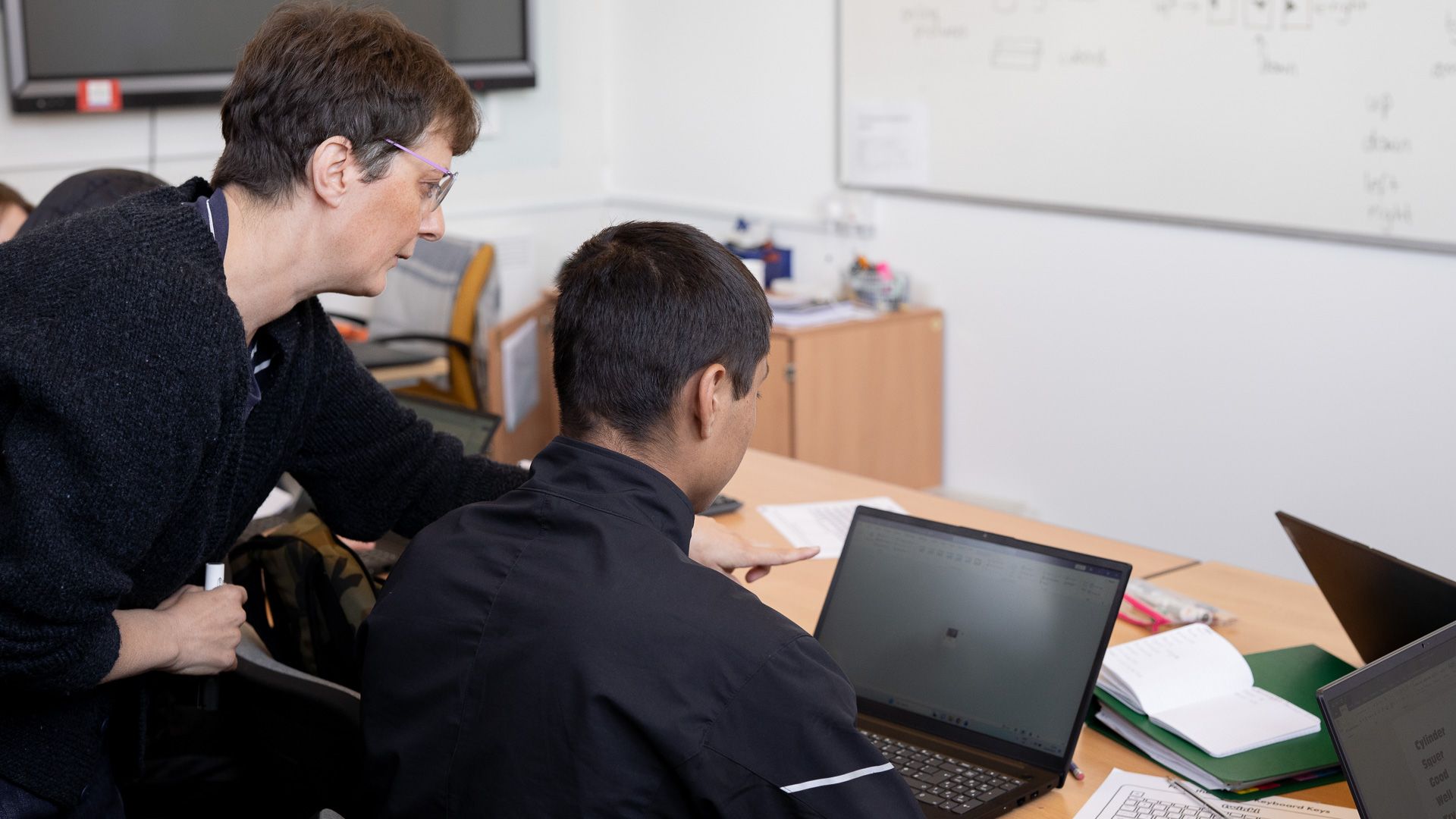How it works
Education and Training
UNICEF found not a single region in the UK had successfully met the 20-school-day target for finding places for all the UASC in their care in 2018
On arrival at Baca, most child refugees do not speak English. Many of our new arrivals have had no formal education, or their schooling was disrupted by war and conflict, leaving them with lower literacy skills and significant gaps in their knowledge of key subjects. At Baca, we prioritise education, offering comprehensive support and resources for young people to gain qualifications or attend local colleges. Our aim is to give the opportunity to learn using a holistic approach offering pastoral and educational care supporting their personal and social journey using English.
An integral part of Baca’s education and training programme is our daily in-house English, Maths and ICT teaching provision. Learning English allows the young people to develop, grow in confidence, express emotions and understand some of the processes and situations that they find themselves in. It enables them to have the foundations to rebuild their lives.
Our qualified and experienced Education Team provide:
Pre-entry ESOL teaching and entry level support
Entry 1 qualifications through a partnership with a local college
Additional support to those young people placed with Baca and attending a local college through one-to-one mentoring
Days 1-2
Focus: Initial English assessment
In the first two days of their arrival, we address the immediate educational needs of the young person.
An initial assessment of the young person's English proficiency in speaking and comprehension is conducted by their teacher. This information is shared with the class teacher to aid in lesson planning.
The young person is introduced to English lessons on the first working day following their arrival. Our structured English program offers lessons every weekday morning for three hours.

Weeks 1-2
Focus: Starting Baca College lessons and introduction to local resources
During the first two weeks, we focus on the early stages of their English, maths and ICT education.
Specialist ESOL teachers work one-on-one with the young person to assess their spoken, comprehension, and written English, and group them accordingly with other young people. Progress is continually monitored to ensure the appropriate level of instruction.
At this stage, the young person becomes familiar with the education system and the expectation that they will eventually attend local colleges when ready.

Months 1-4
Focus: Preparation for College entry, understanding support-related terms, and library use
In the following months, we work to prepare young people for college entry and further enhance their educational experience.
The Baca College English Program continues to build their language skills and knowledge, as well as Maths and ICT skills, equipping them with the proficiency needed to access college ESOL courses. Young people are paired one-to-one with volunteer mentors and meet weekly, fostering improvements in their education.
We encourage young people to use the library for internet access and access to books and DVDs to further practice their English skills.
Semi-Independence
Focus: College registration, homework support, and involvement in college activities
As young people transition to semi-independent living, we guide them through the college registration process and offer continuous educational support.
Our teachers and support workers assist young people with the registration process, accompanying them to interviews, registration, and induction sessions.
Once in college, we maintain our support, encouraging them to attend in-house lessons on non-college days to ensure ongoing learning in smaller groups. We provide additional support with exam preparation and areas where they require assistance through our weekly College Club with volunteers.
Support workers actively participate in parents' evenings and maintain regular communication with course tutors. We also strive to attend college events, such as awards evenings, to celebrate young people's achievements.
Support workers attend parents’ evenings as well and maintaining continual communications with course tutors. If there are awards evenings or similar at the college, every effort is made to attend to the young person’s achievements can be celebrated.
Move to Independence
Focus: Progression to standard college courses
Upon reaching a good level of English proficiency, young people are encouraged to apply for further courses, which may be academic such as GCSEs or more practical apprenticeships. We provide support throughout the application process for these courses.
General support continues, with support workers maintaining ongoing connections with college tutors to ensure the young people's continued success in their educational journey.